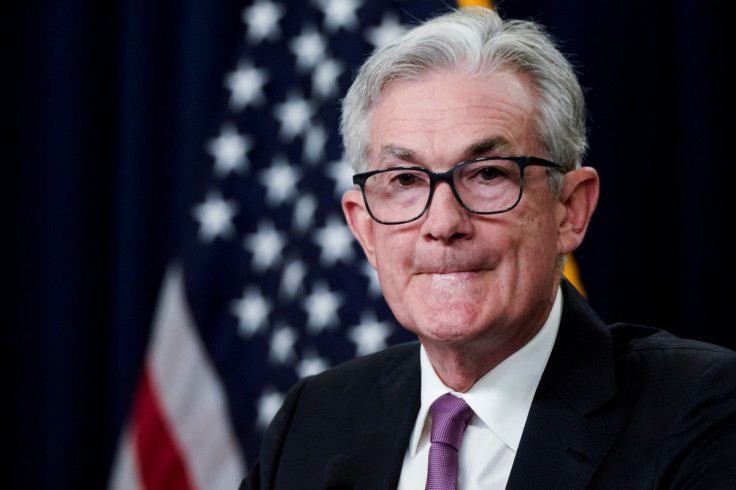Fed Blames The Pandemic For Inflation, Hopes For A Soft Landing — Will It Happen?
In a conference call on Thursday morning, Fed chair Jerome Powell said inflation wouldn't have happened without the pandemic.
In essence, he reaffirmed an early position that the spike in commodity prices was caused in the first place by a shift in the demand from services to goods during the pandemic, like people buying more autos to get around instead of using public transportation. Meanwhile, he iterated his hopes that the U.S. economy would end up on a soft landing.
Anessa Custovic, PhD., chief investment officer and investment advisor representative at Cardinal Retirement Planning, Inc., thinks there's some truth in Fed's assessment that the origins of the recent inflation should be traced to the pandemic.
"We saw that the average American was sitting on unprecedented savings and with nowhere to go — Americans started spending," Custovic told International Business Times in an email. "It's not common that most households in America decide simultaneously that they need a home gym, but those are the situations the pandemic brought about — unprecedented demand."
Nonetheless, she thinks that price hikes were fueled more by the supply side than the economy's demand side. "If we had no supply chain issues, then the rise in demand wouldn't have been as dramatic," Custovic explained. "Because of supply chain issues, we didn't even have the 'normal' amount of supply for any of the goods, let alone a surplus to meet the new demand."
Custovic's contention is confirmed by the behavior of the Baltic Exchange Dry Index (BEDI), a measure of international transportation costs, which soared from 450 points on May 20, 2020, to 5,500 by October 2021, reflecting supply-side bottlenecks like long delays at critical ports around the world, shortage of containers and factory closures in China.
"The uncertainty of the pandemic combined with geopolitical tensions, in a world where we are so dependent upon other countries to produce goods and services, created the perfect storm to propel inflation much higher than it ever would have gone," Custovic added.
Jacob Channel, senior economist at LendingTree, sees the origins of inflation more on the supply rather than the demand side of the market equation, too.
"Consumer demand has indeed been high, which has doubtlessly contributed to inflation, but given how many supply shocks producers of a variety of goods and services have had to deal with over the last two and half years, it wouldn't make sense to act as though current inflation is purely a demand issue," Channel explained in an email to IBT.
The good news is that commodity demand has eased as the pandemic lockdowns have ended in most countries worldwide, and consumers have returned to gyms, restaurants and even public transportation rather than driving. Meanwhile, some supply chain issues have eased, too, like port congestion and container shortages, as reflected in a significant decline in the BEDI. It's currently standing at 1113 points, down from its 5,500 peak in October 2021.
Will these developments be sufficient to assure a "soft landing" for the U.S. economy?
Liam Hunt, analyst at SophisticatedInvestor.com, doesn't think so, as the world is different these days.
"For years, the global economy rested on a foundation apt for low inflation thanks to cheap energy from Russia and cheap goods from China," Hunt said in an email to IBT. "Given that this is no longer the case, a soft landing is wishful thinking from the Fed chairman."

© Copyright IBTimes 2024. All rights reserved.





















